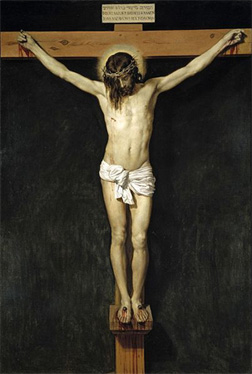President Obama has stated in his inaugural address, "We will restore science to its rightful place." I guess that I am less that sure about where that place is.
What is science's place? If it has been displaced, what has usurped it?
I am sure to those (such as myself) who still hold a Modernist viewpoint, science is pretty much authoritative. And for questions that it was created to answer, science does pretty well. I am a big advocate of Western allopathic medicine, physics, information theory, and most of the rest of the Dead European White Man package. Given the choice between antibiotics and accupuncture and herbal cures, I say, "Pass the pills, please."
But physical science was created to answer one category of questions, not every category. One of the big lessons of the 20th century is that while science is good at answering questions of "how," (as in, "How do I build a bridge that spans the Golden Gate?"), it pretty much fails when asked the questions of "why," (as in, "Why should I not take everything away from people who are ethnically different from me?")
If science has been displaced, I think that it has been displaced by clearer thinking about "why" we should (or should not) attempt some actions. We should ask questions about the value of human life before we use science to design weapons of mass destruction. We should ask those same questions before we use science to justify subordinating human lives to those of animals.
During the High Middle Ages, theology was "The Queen of the Sciences," and served as the capstone to the Trivium and Quadrivium that young men were expected to study. This meant that the other subjects (including Philosophy) existed primarily to help with theological thought.
Science had better watch out. Nothing stays the same.
Economically conservative social liberals are the “jackalopes of American politics.” - Jonah Goldberg
Thursday, April 16, 2009
Friday, April 10, 2009
Good Friday Posting--Crucifixion

An admirable article at Slate about the significance of Jesus' crucifixion in the first century:
A central statement in traditional Christian creeds is that Jesus was crucified "under Pontius Pilate." But the majority of Christians have only the vaguest sense what the phrase represents, and most non-Christians probably can't imagine why it's such an integral part of Christian faith. "Crucified under Pontius Pilate" provides the Jesus story with its most obvious link to larger human history.
Pilate was a historical figure, the Roman procurator of Judea; he was referred to in other sources of the time and even mentioned in an inscription found at the site of ancient Caesarea in Israel. Linking Jesus' death with Pilate represents the insistence that Jesus was a real person, not merely a figure of myth or legend. More than this, the phrase also communicates concisely some pretty important specifics of that historical event...
...It's rather clear what St. Paul meant by saying that "the preaching of the cross is foolishness" to most people of his day. As Martin Hengel showed in Crucifixion in the Ancient World and the Folly of the Message of the Cross, Roman-era writers deemed crucifixion the worst imaginable fate, a punishment of unspeakable shamefulness. Celsus, a Roman critic of Christianity, ridiculed Christians for treating as divine someone who had been crucified. A second-century anti-Christian graffito from Rome, well-known among historians who study the time period, depicts a crudely drawn crucified man with a donkey's head; under it stands a human figure, and beneath this is a derisive scrawl: "Alexamenos worships his god."
A good reminder this Good Friday.
Subscribe to:
Comments (Atom)
Putting my Best Face Forward
So new day, new look. I am making another posting to what was never more that a shout-into-the-well blog. But I've updated the look of t...

-
From Instapundit.com : -------------------------------- WHY THE REPUBLICANS SHOULD BE WORRIED, and the Democrats should be seizing opportuni...
-
Jim Baen has launched a new, electronic magazine, Jim Baen's Universe! While subscriptions start at $30, they range up to $500 in a mul...
-
CBS's foray into the blogosphere, The Public Eye , has a neat little sidebar called The Rules of Engagement . It's so neat, I'd ...